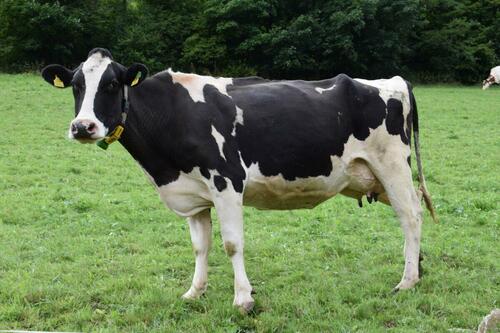This Is Why Your ‘Locally Butchered’ Beef Might Actually Come From China
Authored by Wesley Shank via The Epoch Times,
Misleading label claims are everywhere…
They bombard you while walking down the grocery store aisles.
They creep up on you while scanning a slick marketer’s website.
They shock you when even your best friend recommends an industrial organic brand… “Hey, it’s a lot cheaper and they say it’s just as good!”
“Well… how do I know?”
I admit this is the hard part because the big guys don’t want you to know! They spend tens of thousands of dollars to design the label and marketing claims to subtly deceive you without you knowing.
And they’ve done a good job… many people are fooled.
It’s time to pull back the shroud to expose the industrial reality that lies behind.
Deceptive Label Claims to Be Aware of:
1. Cage-Free, Free-Range, and even Pastured
The big guys describe their chickens flawlessly. Their websites show lovely pictures of birds walking in lush grass with sunshine streaming around them.
Yes, they do look… almost pastured… until you notice the sprawling industrial “CAFO barn” at the edge of one picture (in the video link).
That barn could be holding 10,000+ birds. Maybe 5% of them will venture outside during their short lives—but probably not.
(Egor Myznik & Zoe Schaeffer/Unsplash)
Truly no comparison…
There is so much more to share and explain… I’ll devote an entire email to this as soon as possible.
And I didn’t even start on the same problem with CAFO Industrial Organic Dairy farms. More on that next week…
2. “Grass-fed,” Beef
Some “grass-fed” beef is actually fed a corn and soy based diet for the last 3-5 months of its life in a feedlot.
Sure doesn’t sound like grass-fed to me!
But like so many of these label claims, they have a kernel of truth mixed in to make a very tricky logic.
Most cattle are raised on grass for the first half of their lives before being grain-finished in a CAFO feedlot. So the industrial guys say…
“Of course I can label my beef as ‘grass-fed’!”
These cattle eat grass for part of their lives and the regulations don’t say how much grass they need to eat before I sell this as ‘grass-fed beef.’
Too bad for the customers if they don’t know what my ‘grass-fed’ means!”
I’m not making this up.
This is the logic that gets cheap “grass-fed” beef into supermarkets.
If you want truly grass-fed beef, you must ask for 100% grass-fed & grass-finished. And make sure it’s chemical-free too! Even grasses are commonly sprayed in the industrial world.
Many of the products labeled as “made in the USA” might not be. (Shutterstock)
3. Product of the USA Meat
Beef and Pork can be raised and slaughtered in Australia, New Zealand, Uruguay, Brazil, China, etc…
It’s then shipped over here to be cut into your supermarket steaks, roasts and burgers…
And legally labeled as “Product of the USA!”
Sad, but true.
Those cattle and pigs didn’t breath a single breath of United States air to merit this status. But shoppers will never know the difference.
A Stone Barns Center report says 75-80% of all “USA” grass-fed beef sold online or in grocery stores is imported from overseas.
It is shocking that United States label regulations allow this.
But in some ways, the next one is even crazier!
4. “Fresh,” and “Never-been-frozen,” Poultry
According to the USDA, poultry can be sold as “fresh” if it has never been below 26° F.
Excuse me, but isn’t 32° usually considered the freezing point?
And there’s another misleading claim. This one is especially important with turkey season here.
Poultry can be sold as “never been frozen” as long as it hasn’t been stored below 0° F. Read it in the USDA’s own words.
This. is. crazy.
“Never been frozen” says quite clearly that it, well… has never been frozen. I know from experience that chickens and turkeys at 10° are quite solidly frozen!
But not to the industrial guys. As long as last year’s turkey didn’t go below 0° they can thaw it out and sell it to unsuspecting families as a beautiful “never-been-frozen” Thanksgiving Turkey.
That’s the level of integrity you get with the Industrial Organic food system.
Industrial Organics are not all bad. They help cut down on our nation’s chemical and antibiotic use.
BUT.
The deceptive marketing claims are wrong. We need to pull back the Industrial Curtain layer by layer so everyone in this country can see what lies behind.
Please help spread the word.
It’s time more people wake up and start supporting small farms across the country again. Those farms are where the real, truly pastured organics all began.
Tyler Durden
Fri, 04/01/2022 – 23:00

